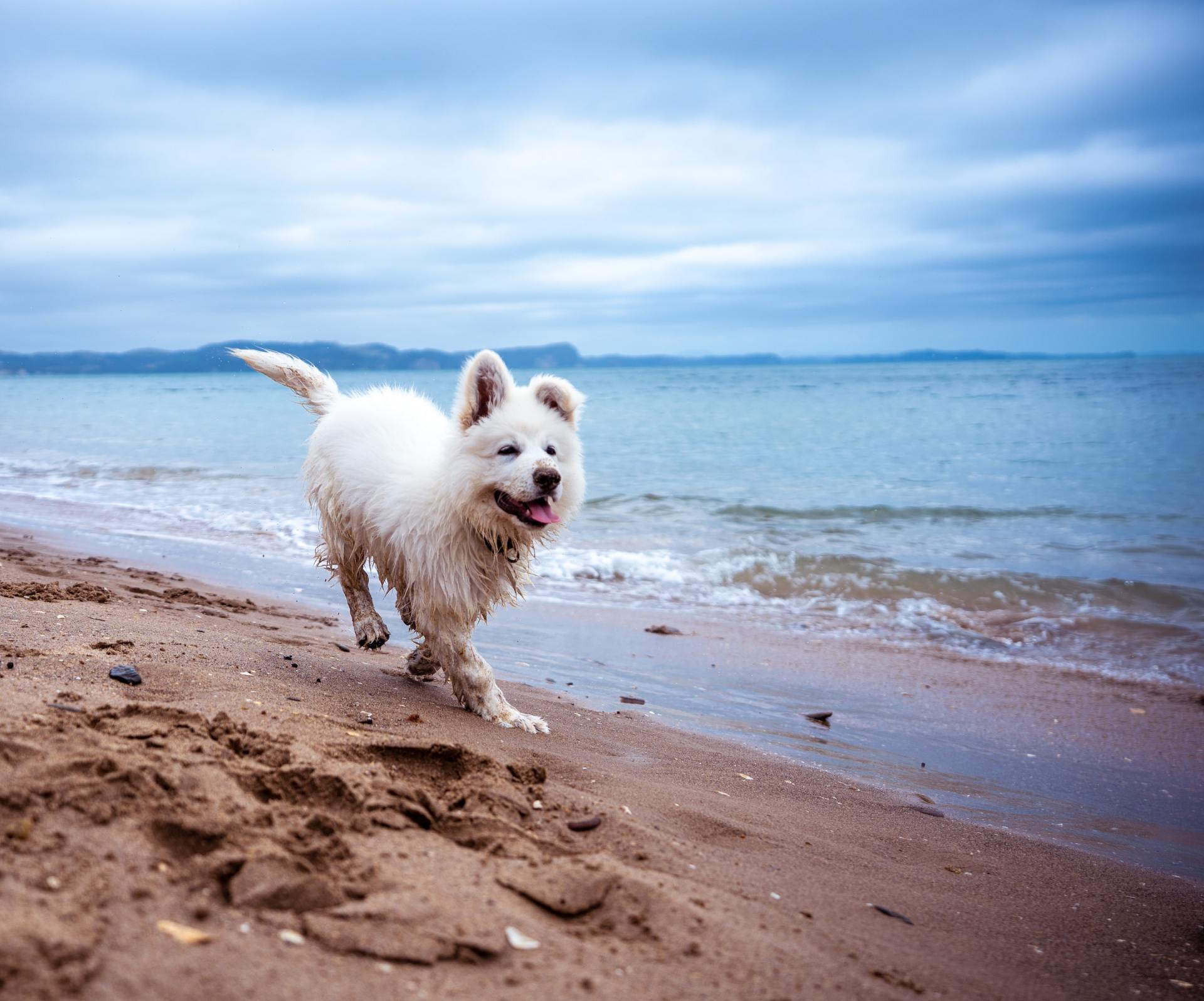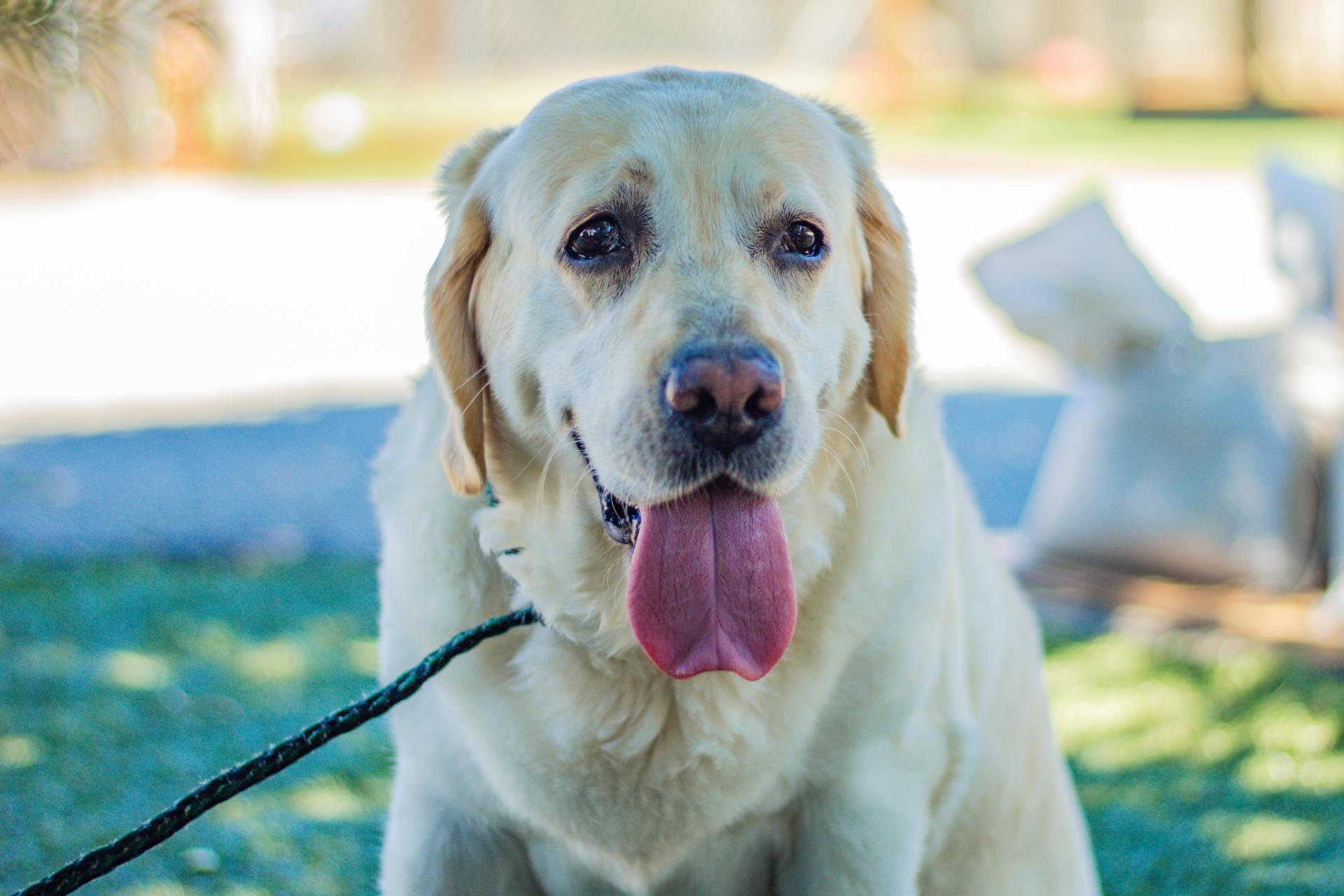Thunderstorm Anxiety in Dogs
Is your canine companion scared of storms? If so, he’s in good company! Many pooches morph into quaking, shivering balls of fear when those summer storms roll in. In this article, a Fort Myers, FL vet lists some ways to help your pet cope.
Background Noise
One thing that can help is to turn up a TV or radio. The sound may drown out some of the storm’s noise, especially if it’s far off.
Desensitization
Speaking of noise, you can also use it for desensitization training. Get a program or DVD of storm sounds, and play it for your furry friend. At first, keep the volume down low. As your pooch gets used to it, keep turning the volume up.
Soothing Clothes
You can also get calming shirts for your furry pal. This is kind of like the doggy version of a weighted blanket. Some pups really do enjoy these, but every pooch is different.
Pet-Calming Products
Another thing you can try is getting your furry buddy pet-calming products. There are many to choose from, such as treats, sprays, and collars. Just be sure to follow the package directions—and your vet’s advice—to the letter.
Safe Haven
Crates can also be very helpful here. If used properly, crates provide our canine pals with comfy little dens. However—and we can’t stress this enough—it takes proper training for Fido to think of his crate as a safe place, instead of a jail cell. Ask your vet for specific advice on this.
Playtime
Dogs are always calmer when they’re a bit tired. If you know it’s going to storm later, take your four-legged buddy out with a fun walk and play session before the skies get dark.
Bribery
When it gets dark, give your canine friend something to occupy himself with. Puzzle toys are great for this! A new chew toy may also do the trick.
Tips
There are also a few things you want to avoid. First and foremost, don’t leave your pup outdoors in bad weather. Even if Fido has a fenced yard and a comfy doghouse, he’ll still be frightened of the thunder, wind, and rain. Also, don’t go overboard with trying to soothe him. That may just encourage him to act up!
Our Advice on Thunderstorm Anxiety in Dogs in 2025
What is desensitization training, and how can it be used to help dogs with thunderstorm anxiety?
Desensitization training involves gradually exposing dogs to the sounds of thunderstorms at a low volume, with the intensity slowly increased over time. This method helps reduce their fear by allowing them to become accustomed to storm sounds in a controlled, safe environment. Consistent, patient training can help the dog learn that storm noises are not threatening, reducing their anxiety during actual storms. It’s important to accompany this training with positive reinforcement, offering treats and comfort to create a positive association with the sounds. Consulting a veterinarian or a professional dog trainer can provide guidance tailored to your dog’s specific needs.
What are the signs that a dog is experiencing thunderstorm anxiety?
Signs of thunderstorm anxiety in dogs include trembling, hiding, excessive panting, drooling, whining or barking, pacing, attempting to escape, and destructive behavior. Some dogs may also exhibit unusual clinginess, refuse to eat, or have accidents indoors despite being house-trained. These behaviors stem from the dog’s fear of loud noises, changes in atmospheric pressure, and the static electricity associated with storms. Observing these signs is crucial for providing timely comfort and implementing strategies to help alleviate their anxiety during thunderstorms.
Can professional help, such as a dog trainer or behaviorist, be beneficial for dogs with thunderstorm anxiety?
Yes, professional help from a dog trainer or behaviorist can be highly beneficial for dogs with thunderstorm anxiety. These experts employ specialized techniques, such as desensitization and counter-conditioning, tailored to each dog’s specific needs. They can also provide guidance on managing anxiety triggers and recommend suitable calming aids. Consulting a professional ensures a structured approach to reducing anxiety, enhancing the dog’s overall well-being. If your dog exhibits signs of thunderstorm anxiety, our clinic in Fort Myers, FL, can offer referrals to reputable professionals in this field.
How can you create a safe and comforting environment for your dog during a thunderstorm?
To create a safe and comforting environment for your dog during a thunderstorm, provide a quiet, secure space where your dog can retreat, such as a crate with familiar bedding or a room away from external noise. Use background noise from a TV or radio to mask storm sounds. Consider a calming shirt or anxiety wrap for additional comfort. Ensure your dog has access to water and a favorite toy. Avoid reinforcing fearful behavior; instead, remain calm and composed to help your dog feel secure. If anxiety persists, consult a veterinarian for further advice.
What should you do if your dog’s thunderstorm anxiety seems to be getting worse or not improving despite your efforts?
If your dog’s thunderstorm anxiety worsens or does not improve despite your efforts, it’s important to consult with a veterinarian. A vet can assess your dog for any underlying health issues that might be contributing to the anxiety and discuss the possibility of medication or supplements to help manage the symptoms. Additionally, seeking the guidance of a professional dog trainer or a veterinary behaviorist may provide specialized techniques and strategies tailored to your dog’s needs, ensuring a more targeted approach to managing their anxiety effectively.
If you know or suspect that your dog suffers from anxiety, contact your Fort Myers, FL veterinary clinic today. We are here for you!





